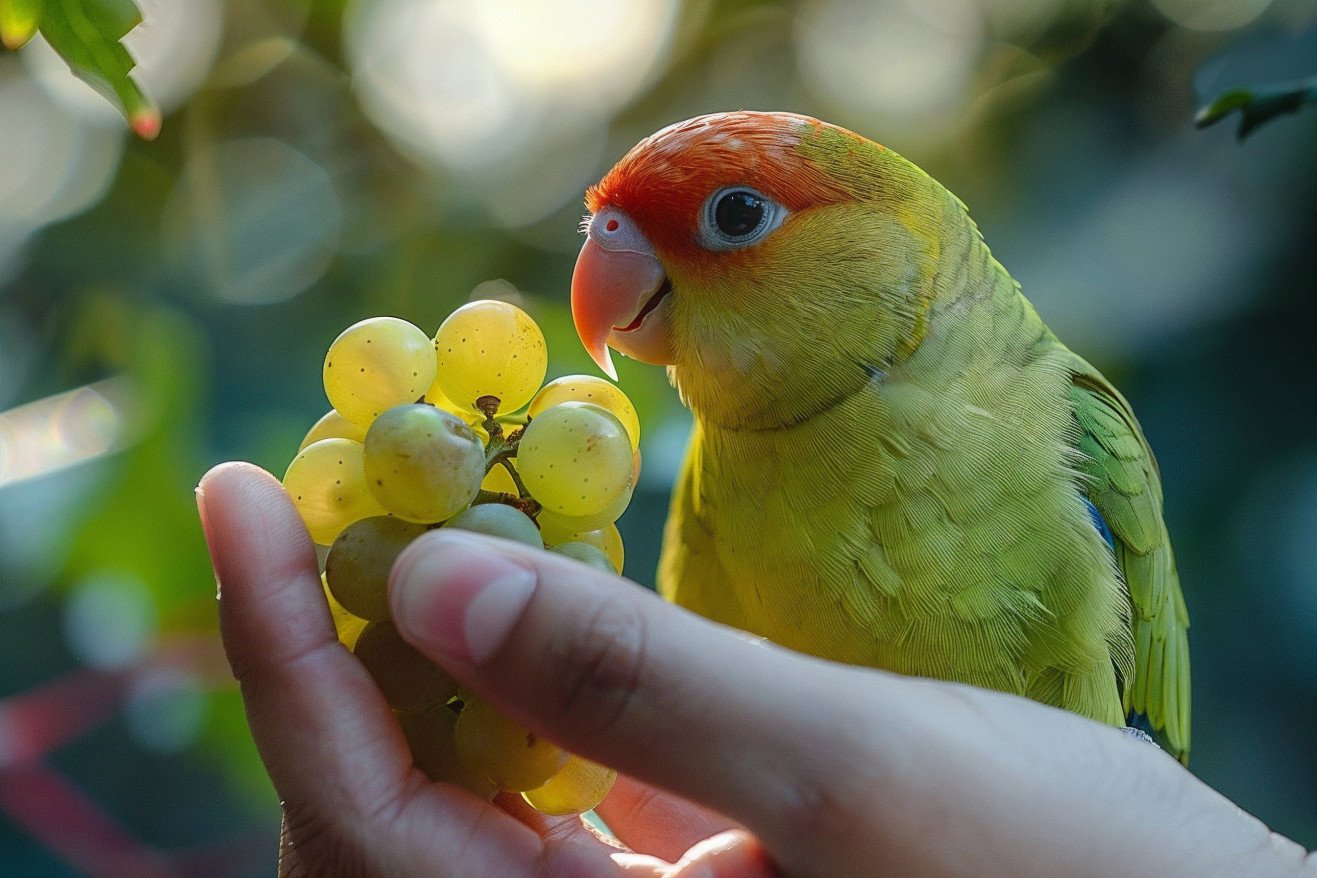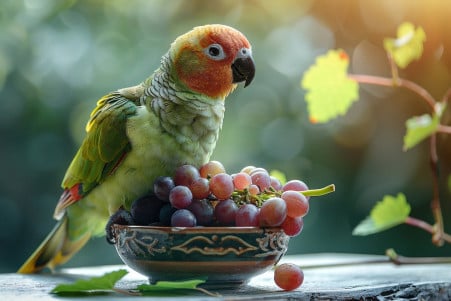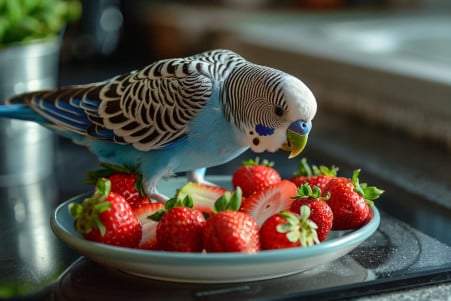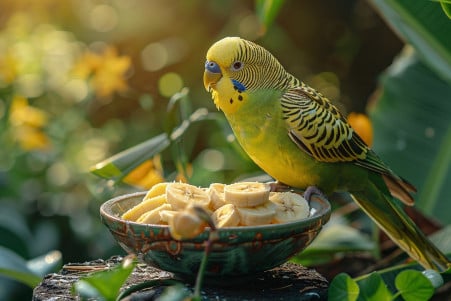Can Parakeets Eat Grapes? An Expert Roundup on Bird Fruit
15 May 2024 • Updated 15 May 2024

If you’ve ever wondered if your pet bird can partake in the juicy goodness of grapes, you’re not alone – and if you’re specifically wondering if parakeets can eat grapes, the answer is yes, but with some caveats. Parakeets can eat grapes in moderation as an occasional treat, but you should only give them seedless grapes, as seeds can pose a choking risk. It’s also important to make sure the grapes are well-washed and that you’ve removed any stems or leaves.
Since so many pet parents are asking about grapes and other fruits in relation to parakeets, we decided to take a deep dive into what the experts have to say, as well as the scientific research, about the best diet for these colorful birds. By looking at studies conducted by avian vets, ornithologists, and bird nutritionists, we hope to provide some important information that will help you make the best choices for your parakeet, while still allowing for a little bit of sweetness now and then.
Can parakeets eat grapes?
Nutritional Value: What Grapes Provide Parakeets
Grapes can help supplement a parakeet's diet with some important nutrients when fed in moderation. Not only do these sweet fruits contain valuable antioxidants that can help promote good health, according to a source cited by Parrot Junkie, but they are also a good source of vitamin C, vitamin K, and the mineral manganese, all of which help with a bird's immune system and bone health.
In addition, the natural sugars in grapes can give parakeets a quick energy boost, especially if they are particularly active. However, as VCA Animal Hospitals points out, grapes are high in fructose, and too much of it can lead to obesity and other health problems in small birds. This is why it's important to make sure that grapes are fed to parakeets in moderation. This way, they can get the nutritional benefits without the potential problems associated with too much sugar.
Portion Control: How Much Grape Can Parakeets Have?
Parrot Junkie notes that the recommended serving size for parakeets is half a grape for small birds and one grape for larger birds, up to three times a week. As a result, grapes should be treated as a special snack and not a regular part of a parakeet's diet, according to Omlet US. Overconsumption of grapes can lead to obesity, digestive problems, and other health issues in parakeets.
That said, it's important to keep an eye on a parakeet's diet as a whole to make sure it's well-rounded and includes a mix of seeds, pellets, vegetables, and a small amount of fruit, per PetHelpful. The serving sizes of these foods may need to be adjusted based on the bird's size, age, and activity level.
Introducing New Foods: Tips for Changing Your Parakeet's Diet
Parakeets can be picky eaters, especially if they're used to eating a seed-based diet. According to the Bird Tricks Store, the best way to introduce new foods is to do so gradually, either by mixing them in with foods they already like or by offering them during their peak foraging times.
When introducing new foods, it's also important to think about the texture, temperature, and color of the food you're offering your parakeet. According to Bird Supplies, some birds may prefer raw, blended, pulsed, cooked, mushy, mashed, or mixed food, and the temperature and color of the food can also affect whether or not a parakeet will be willing to try it.
Positive reinforcement and consistent training can also help you get your parakeet to eat healthier foods like veggies and pellets. According to the Bird Street Bistro, it's also important to be patient and stick to a regular training schedule when you're trying to get your parakeet to eat a more diverse range of healthy foods.
A Balanced Diet: What to Feed Your Parakeet
While you can give them fruit as a treat, parakeets need a balanced diet that includes high-quality seeds, pellets, and vegetables. ExoticDirect notes that in the wild, parakeets eat a variety of foods including nuts, seeds, insects, nectar, and tree bark. To ensure that they are as healthy as possible in captivity, an all-seed diet must be supplemented with other nutritious options.
Leafy greens like kale, spinach, and romaine lettuce, as well as brightly colored vegetables like carrots, bell peppers, and sweet potatoes, are packed with important vitamins and minerals that parakeets need. PetHelpful also notes that whole grains, legumes, and nuts can be given in moderation to help ensure that your bird's diet is well-rounded and nutritious.
That said, there are also many foods that are toxic to birds, including avocado, onions, and certain types of lettuce like iceberg. VCA Animal Hospitals also notes that you may need to supplement your bird's diet with vitamins and minerals to make sure that it's well-rounded and complete.
How to Monitor Parakeet Health: Signs of an Improper Diet
According to VCA Animal Hospitals, a healthy parakeet will be bright, alert, and active and will maintain a normal body condition with a keel that is easily felt but not sharp. Changes in eating habits, body weight, feather quality, molting, and droppings are all signs of a poor diet, according to the Merck Veterinary Manual.
Parakeet owners should be on the lookout for any changes in their bird's behavior or appearance. According to Best Friends Animal Society, a loss of appetite and water consumption and changes in droppings are signs of an underlying health issue, which could be related to diet.
If a parakeet seems sick or shows other signs of a problem, it's important to see an avian vet as soon as possible. According to the Merck Veterinary Manual, diagnostic tests like blood tests and X-rays may be needed to diagnose and treat the problem.
Conclusion: Moderation and Balance for Parakeet Health
While parakeets can have grapes as an occasional treat, it's important to make sure that their diet is well-rounded and balanced for the best health. It's also important to make sure that any high-sugar foods, including grapes, are given in moderation to avoid obesity and other health problems. A balanced diet will be made up mostly of high-quality seeds and pellets with some fresh vegetables and a small amount of fruit.
If you're trying to get your parakeet to eat a healthier diet, patience and positive reinforcement can go a long way. Make sure to watch your parakeet closely and take them to the vet if you notice any health problems that could be related to their diet.


